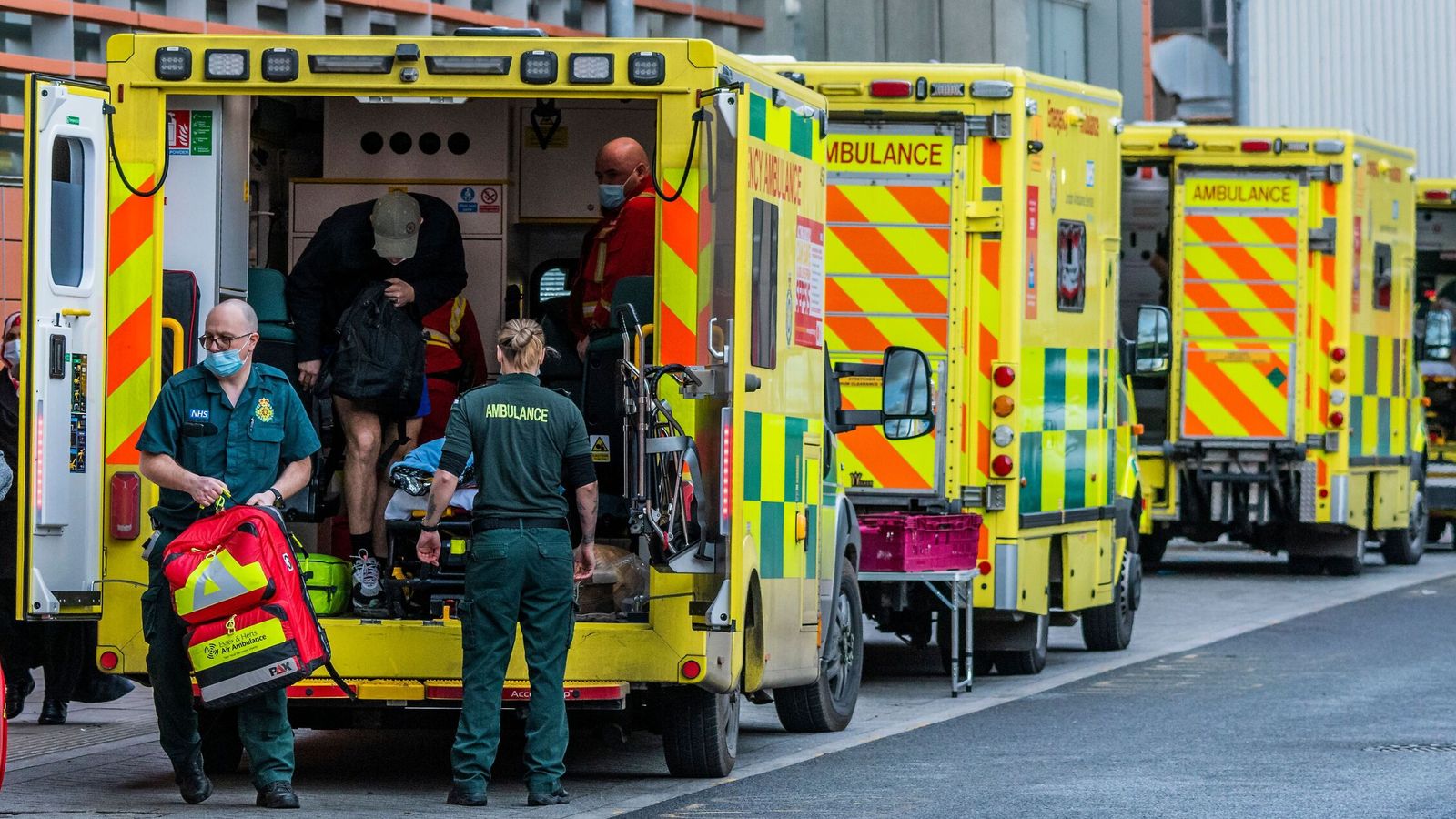Ambulances took almost an hour on average to respond to emergency calls in England last month, the latest NHS data has revealed.
People were left waiting an average of 59 minutes and seven seconds for an ambulance to arrive for the likes of strokes, epilepsy and burns.
The waiting time is up from June, when it was 51 minutes and 38 seconds, and is well above the target of 18 minutes.
It is also just short of the longest response time on record for this category of incidents, which is one hour, one minute and five seconds, set in March.
For the most urgent incidents, such as life-threatening illnesses or injuries, ambulances took an average of nine minutes and 35 seconds to respond – the joint longest average response time since records began in 2017.
The target is seven minutes.
Newly released NHS data also revealed a month of long waits for treatments and lengthy delays in the country’s A&E departments.
Nurses set to vote on walkout over pay as RCN boosts strike fund by £15m
NHS England reduces two-year waits for treatment but 12-month delays soar
Ministers coordinating ‘resilience response’ after ‘major’ cyber attack hits NHS systems across UK
The number of people in England waiting to start routine hospital treatment has risen to a record high, with a total of 6.7 million people were waiting to start treatment at the end of June.
This is up from 6.6 million in May and is the highest number since records began in August 2007.
In emergency departments, 29,317 people had to wait more than 12 hours between the decision to admit them and actually being admitted to hospital.
It is the highest number of people recorded since August 2010 and is up 33% from 22,034 in June.








